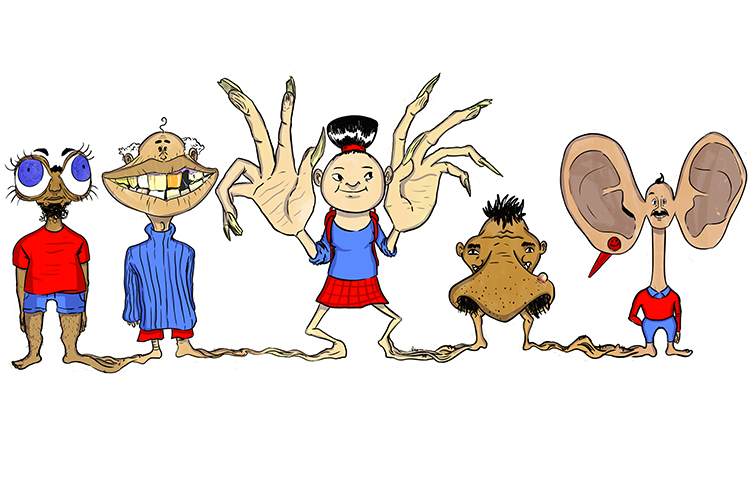Types of effects
The kinds of effect that language features have on you depends on the writer’s intention (assuming that he or she is a competent writer!) Here are some effects that writers might aim for, under each of our four main headings:

Understand
The language feature changes your view, or understanding:
- Increases your knowledge (inform/advise)
- Teaches you how to do something you couldn’t do before (learn)
- Helps you gain a different view on an issue/dispute/question/belief (different view)
- Helps you to know someone better (get to know)
- Makes you more aware of choices of food, clothing, etc (more aware)
- Alerts you to dangers/scams (be alert)
- Teaches you facts/numerical data for use in support of arguments (learn facts)
Sense The language feature makes what’s being described seem real in your mind:
The language feature makes what’s being described seem real in your mind:
- You can see in your mind’s eye what a person or thing looks like (create picture)
- You can “taste” the gruel being dished up to the workhouse children in Charles Dickens’s Oliver Twist, or the caviar being eaten by the guests in a novel about high society (create taste)
- You can “touch” or “feel” the person’s skin, the animal’s fur or scales, or the surface of some other object (create feel)
- You can “smell” the aroma of the coffee the hero is drinking, or the disgusting, neglected farmyard full of animal faeces (create smell)
- You can “hear” the sounds that the writer refers to (create sound)
Respond

The language feature makes you respond:
- Makes you feel happy/sad (happy, sad, shaken)
- Leaves you wanting to get involved (get involved)
- Changes your mind about something (change mind)
- Makes you feel enraged/engaged/sympathetic/unsympathetic/ supportive/opposed (influences your view)
- Engages you interest (hooks you)
- Gets you to join a cause (join in)
- Persuades your to adopt a new belief (new belief)
Remember
.jpg)
The language feature makes the words more memorable:
- Imprint an image of someone/something on your mind (imprints image)
- Invoke personal memories you have of childhood/school days/jobs/ family etc (recall people, events)
- Provide you with data you can recall for future use (remember data)
- Help you remember the meanings of words (remember words)
NOTE: There are thousands more possible effects, but if you work systematically through Understand, Sense, Respond and Remember when reading a text or source, you should cover everything worthy of note in the particular piece.




